Distinguished Professor Heng Zhang of the Department of Architecture at National Cheng Kung University (NCKU) has long combined the efforts of faculty and students from the Department of Architecture and other colleges to implement University Social Responsibility (USR) projects, focusing on the Chang Suan Shu Settlement in Houbi District, Tainan. Starting this year, she and her team are leading the Ministry of Education’s Phase IV (2025–2027) USR Project, titled “The Heartwarming Transformation of Xin Guangdong—Co-creating a Healing Ecological Art Village.” The project aims to build upon the achievements and experiences of the Chang Suan Shu Settlement, expand healing environments to the neighboring Xin Guangdong Xindong Community, and emphasize the enhancement of the local arts industry. Through a network of connected points, lines, and surfaces, the project seeks to establish a healing ecological village in Houbi District.
Professor Zhang’s connection with Houbi District dates back to 2007, when she collaborated with the Tainan City Government’s Cultural Affairs Bureau to organize the first Jing Liao Dowry Cultural Festival. In 2017, she and her team moved into the Chang Suan Shu area, where the Department of Architecture’s Institute of Environment and Behavior Studies (IEBS) took charge of environmental planning and restoration. Subsequently, through NCKU’s USR-Hub Seed Project “Natural Healing of Chang Suan Shu—Exploring the Land and Meeting the Wind” and the Ministry of Education’s Phase III (2023–2024) USR Project “The Breeze under Chang Suan Shu—Constructing Healing Environmental Spaces,” faculty members from the Department of Architecture and other colleges have jointly carried out community environmental improvements. To date, they have completed 10 construction sites, fostering community cohesion through the creation of healing environments and organizing various community events. These efforts have also involved undergraduate and graduate students in in-depth community engagement, promoting urban-rural and intergenerational exchanges.
Despite the challenges of working in an agricultural area facing population decline and aging demographics, the community-building efforts in Chang Suan Shu Settlement have received widespread recognition. Inspired by a stronger sense of mission, Professor Zhang launched the new USR project “The Heartwarming Transformation of Xin Guangdong—Co-creating a Healing Ecological Art Village.”
Professor Zhang points out that both Xin Guangdong and Chang Suan Shu Settlement are agricultural areas facing similar predicaments, including the outflow of young people, an aging population, and many abandoned traditional courtyard houses leading to environmental degradation. With expertise in environmental planning, design, and restoration, she hopes to leverage the USR project to enhance local environmental quality and aesthetics. By harnessing the healing power of the environment to foster relationships between people and between people and their surroundings, the project aims to attract younger generations, encourage the return of former residents, and welcome new settlers, injecting vitality into Xin Guangdong and shaping it into a distinctive ecological community.
The team’s ultimate goal is to establish a healing ecological village in Houbi. While the new project focuses on Xin Guangdong, Professor Chang emphasizes that they will continue their efforts in Chang Suan Shu Settlement by organizing events and planning low-carbon bicycle routes to connect key locations. She also revealed plans to extend the USR project to Baishatun in Houbi, continuing the work of environmental design and community development to create interconnected and vibrant communities that foster self-identity and revitalization.
Professor Zhang acknowledges the difficulties of attracting external populations to rural areas, which is why she proposes the concept of a “Healing Art Village.” She believes that artists, architects, and designers value environmental quality and aesthetics and can sustain their livelihoods without living in urban centers. A well-designed environment can attract them. Additionally, transforming idle rural spaces into cultural and creative venues to support artistic creation and exhibitions can foster a positive atmosphere, enhancing the overall sense of happiness within the community.
Community building and environmental restoration require abundant resources and support, and the process inevitably involves challenges. However, Professor Zhang never views these as setbacks. With a positive mindset, she embraces a “find another path if one is blocked” attitude, firmly believing that with determination, nothing is impossible. In this spirit, she consistently finds the necessary resources and manpower, calmly facing obstacles and moving forward.
Recognizing that community building requires partners, especially young people, the team has proposed several initiatives at NCKU. These include promoting the USR Micro-Credential Program, offering the course “Design workshop: constructing a Xanadu,” and integrating interdisciplinary curricula to cultivate students’ social engagement abilities, as well as launching the “Sustainable Living Environment Planning and Design Micro-Credential Program.” They also organize workshops to facilitate exchanges and discussions with community residents, promoting cooperation and learning.
The team is also collaborating internationally. In spring and summer 2025, they will jointly hold international workshops with the Department of Human Environment Design at Kio University in Japan and the Design and Open Space Planning Group of the Department of Architecture at Technische Universität Darmstadt in Germany. Faculty and students from both countries will visit the community at different times, proposing and implementing plans to revitalize idle local spaces.
Under Professor Heng Zhang’s leadership, “The Heartwarming Transformation of Xin Guangdong—Co-creating a Healing Ecological Art Village”is designed around 4 main frameworks, focusing on creating healing ecological spaces, practicing local revitalization, establishing local and international partnerships, and promoting environmental awareness while cultivating professional talent. The objective is to integrate cross-institutional and local resources, combined with external support, to develop a diversified collaboration platform. Through these efforts, the project seeks to revitalize the local economy, strengthen community identity, build a healing environment, and create an ecological healing community, ultimately achieving sustainable development. Over a three-year period, the project plans to implement transformations in 6 communities, assist in establishing 2 local brands, set up 3 online platforms, and organize a variety of events and courses to guide the sustainable development of the Xindong Community.
Professor Zhang’s connection with Houbi District dates back to 2007, when she collaborated with the Tainan City Government’s Cultural Affairs Bureau to organize the first Jing Liao Dowry Cultural Festival. In 2017, she and her team moved into the Chang Suan Shu area, where the Department of Architecture’s Institute of Environment and Behavior Studies (IEBS) took charge of environmental planning and restoration. Subsequently, through NCKU’s USR-Hub Seed Project “Natural Healing of Chang Suan Shu—Exploring the Land and Meeting the Wind” and the Ministry of Education’s Phase III (2023–2024) USR Project “The Breeze under Chang Suan Shu—Constructing Healing Environmental Spaces,” faculty members from the Department of Architecture and other colleges have jointly carried out community environmental improvements. To date, they have completed 10 construction sites, fostering community cohesion through the creation of healing environments and organizing various community events. These efforts have also involved undergraduate and graduate students in in-depth community engagement, promoting urban-rural and intergenerational exchanges.
Despite the challenges of working in an agricultural area facing population decline and aging demographics, the community-building efforts in Chang Suan Shu Settlement have received widespread recognition. Inspired by a stronger sense of mission, Professor Zhang launched the new USR project “The Heartwarming Transformation of Xin Guangdong—Co-creating a Healing Ecological Art Village.”
Professor Zhang points out that both Xin Guangdong and Chang Suan Shu Settlement are agricultural areas facing similar predicaments, including the outflow of young people, an aging population, and many abandoned traditional courtyard houses leading to environmental degradation. With expertise in environmental planning, design, and restoration, she hopes to leverage the USR project to enhance local environmental quality and aesthetics. By harnessing the healing power of the environment to foster relationships between people and between people and their surroundings, the project aims to attract younger generations, encourage the return of former residents, and welcome new settlers, injecting vitality into Xin Guangdong and shaping it into a distinctive ecological community.
The team’s ultimate goal is to establish a healing ecological village in Houbi. While the new project focuses on Xin Guangdong, Professor Chang emphasizes that they will continue their efforts in Chang Suan Shu Settlement by organizing events and planning low-carbon bicycle routes to connect key locations. She also revealed plans to extend the USR project to Baishatun in Houbi, continuing the work of environmental design and community development to create interconnected and vibrant communities that foster self-identity and revitalization.
Professor Zhang acknowledges the difficulties of attracting external populations to rural areas, which is why she proposes the concept of a “Healing Art Village.” She believes that artists, architects, and designers value environmental quality and aesthetics and can sustain their livelihoods without living in urban centers. A well-designed environment can attract them. Additionally, transforming idle rural spaces into cultural and creative venues to support artistic creation and exhibitions can foster a positive atmosphere, enhancing the overall sense of happiness within the community.
Community building and environmental restoration require abundant resources and support, and the process inevitably involves challenges. However, Professor Zhang never views these as setbacks. With a positive mindset, she embraces a “find another path if one is blocked” attitude, firmly believing that with determination, nothing is impossible. In this spirit, she consistently finds the necessary resources and manpower, calmly facing obstacles and moving forward.
Recognizing that community building requires partners, especially young people, the team has proposed several initiatives at NCKU. These include promoting the USR Micro-Credential Program, offering the course “Design workshop: constructing a Xanadu,” and integrating interdisciplinary curricula to cultivate students’ social engagement abilities, as well as launching the “Sustainable Living Environment Planning and Design Micro-Credential Program.” They also organize workshops to facilitate exchanges and discussions with community residents, promoting cooperation and learning.
The team is also collaborating internationally. In spring and summer 2025, they will jointly hold international workshops with the Department of Human Environment Design at Kio University in Japan and the Design and Open Space Planning Group of the Department of Architecture at Technische Universität Darmstadt in Germany. Faculty and students from both countries will visit the community at different times, proposing and implementing plans to revitalize idle local spaces.
Under Professor Heng Zhang’s leadership, “The Heartwarming Transformation of Xin Guangdong—Co-creating a Healing Ecological Art Village”is designed around 4 main frameworks, focusing on creating healing ecological spaces, practicing local revitalization, establishing local and international partnerships, and promoting environmental awareness while cultivating professional talent. The objective is to integrate cross-institutional and local resources, combined with external support, to develop a diversified collaboration platform. Through these efforts, the project seeks to revitalize the local economy, strengthen community identity, build a healing environment, and create an ecological healing community, ultimately achieving sustainable development. Over a three-year period, the project plans to implement transformations in 6 communities, assist in establishing 2 local brands, set up 3 online platforms, and organize a variety of events and courses to guide the sustainable development of the Xindong Community.
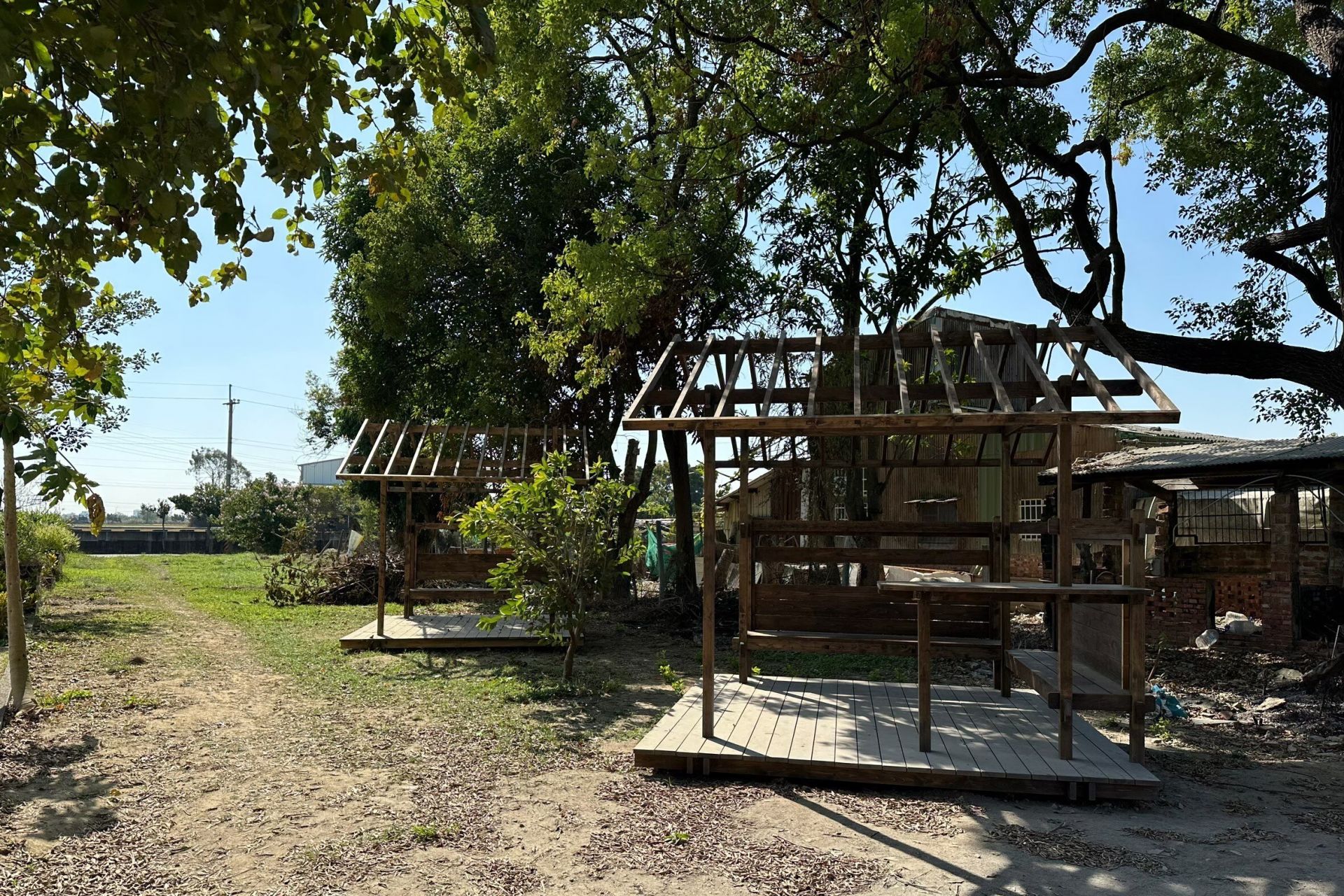
“Taiwan-Japan Work Camp” achievements in Xin Guangdong Area, Houbi District – Wooden Rest Pavilion
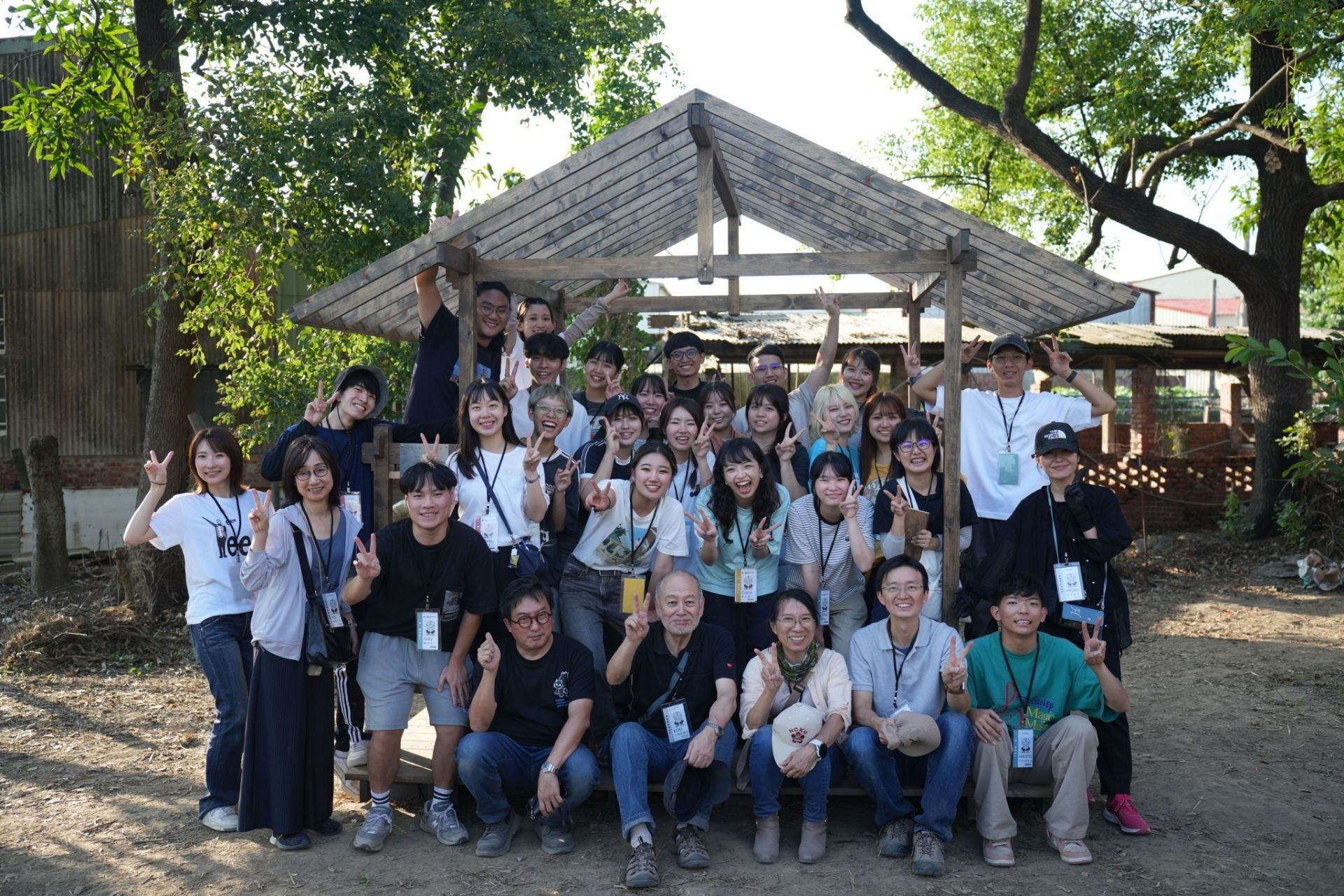
Taiwanese and Japanese students jointly construct a Wooden Rest Pavilion in Xindong Community, learning timber construction techniques through hands-on practice and promoting cultural exchange
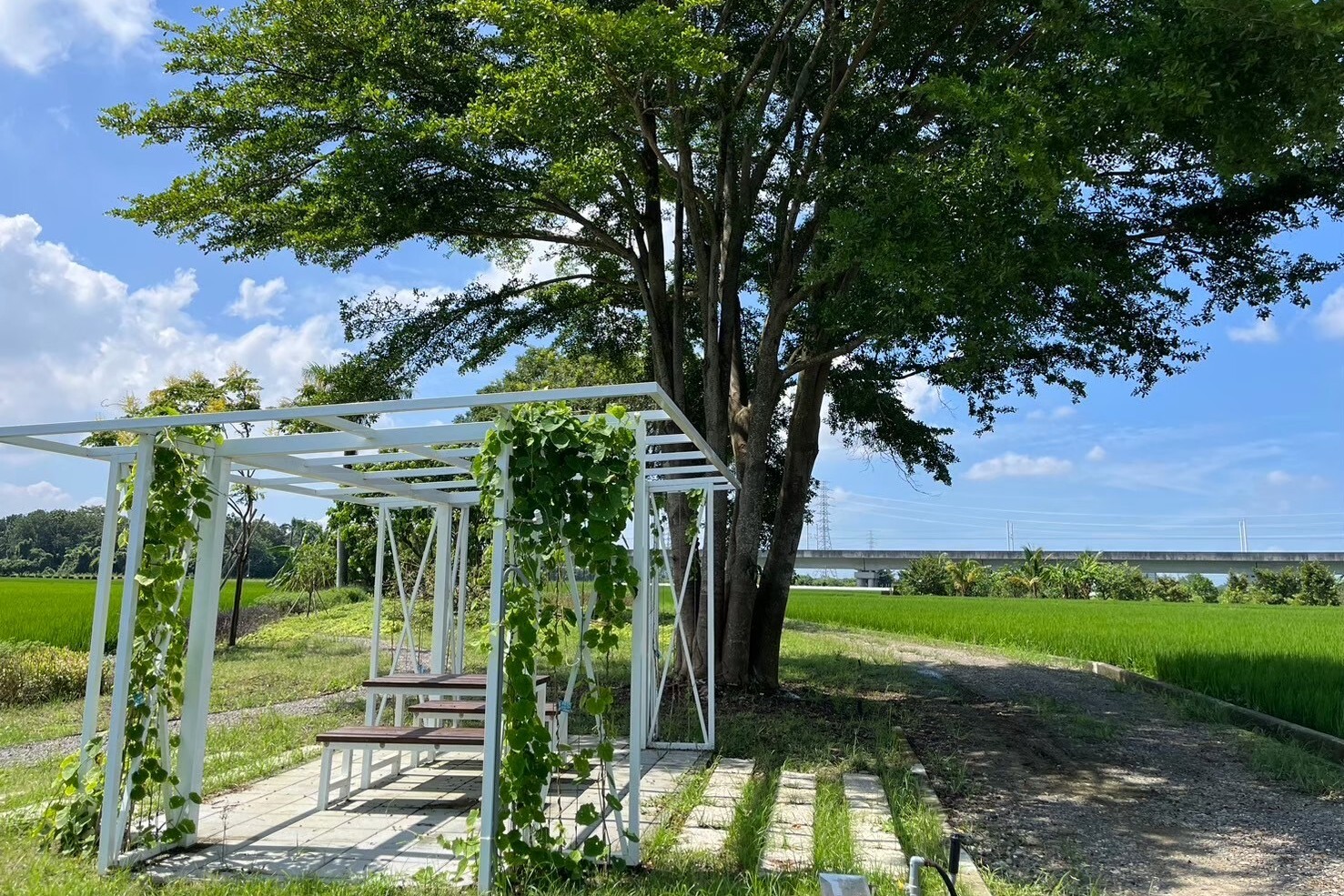
The team’s previous achievement at Chang Suan Shu Community in Houbi District – “Pastoral Landscape”
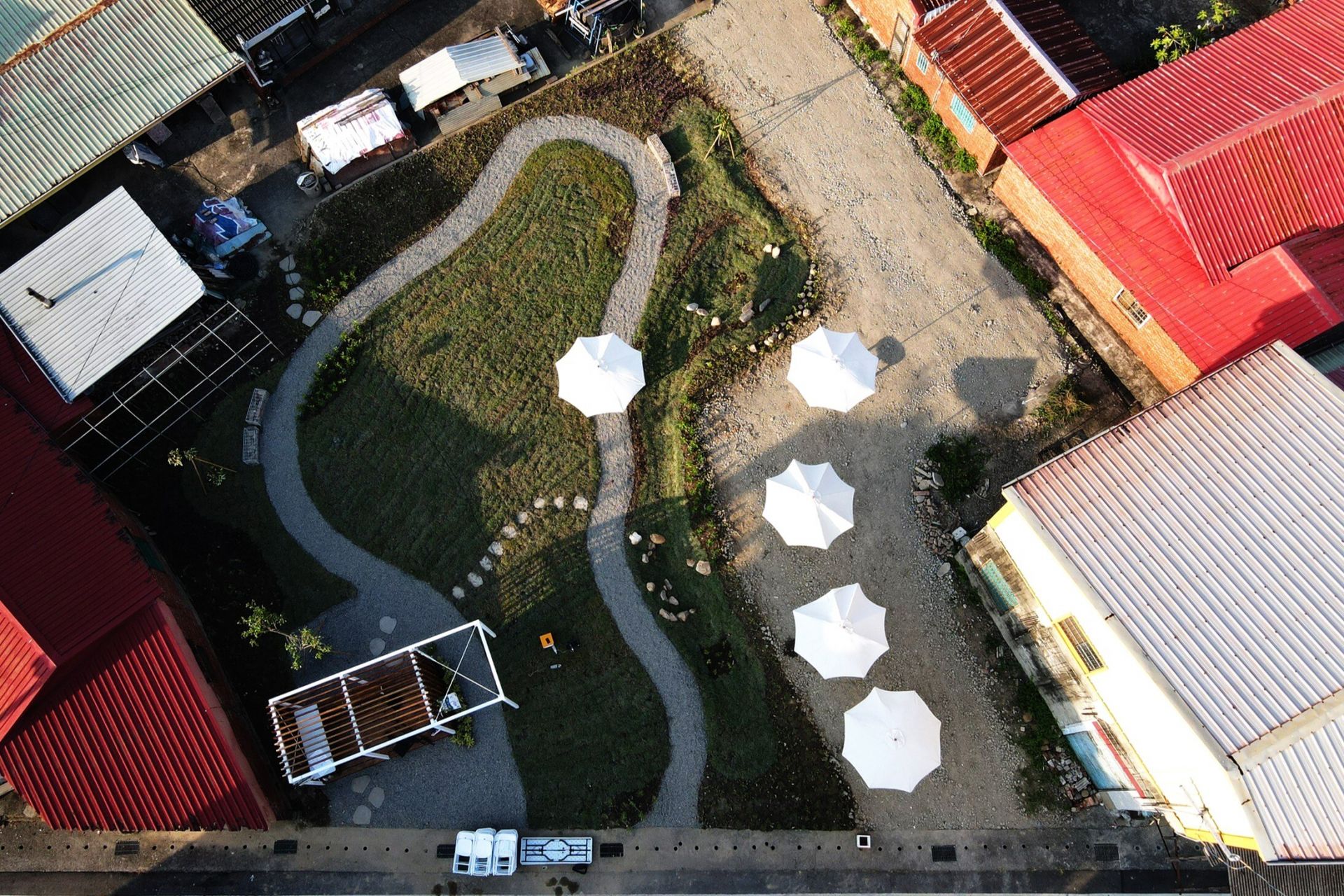
Aerial view of the “Dongdong Hill” Work Camp achievement
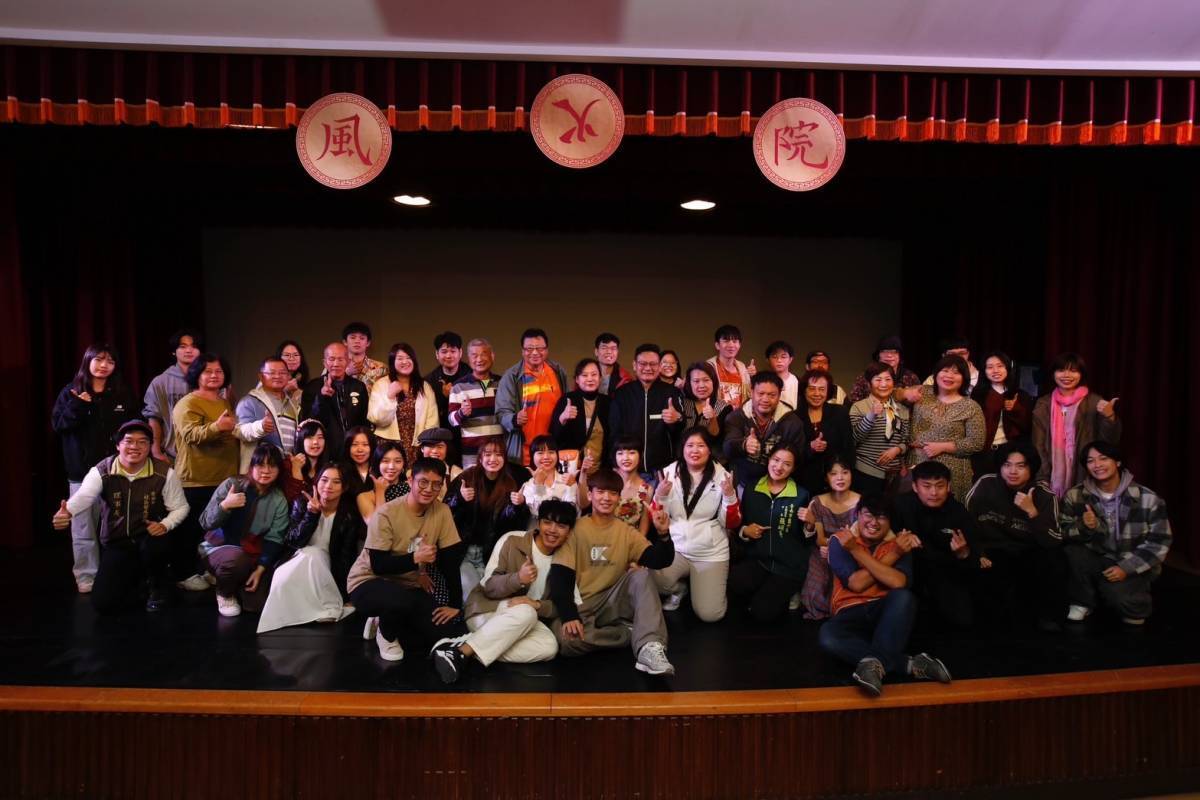
SDG11"Eternal Vitality": NCKU's Interdisciplinary Musical Showcases Social Responsibility, Preserves Art, and Promotes Sustainability
View more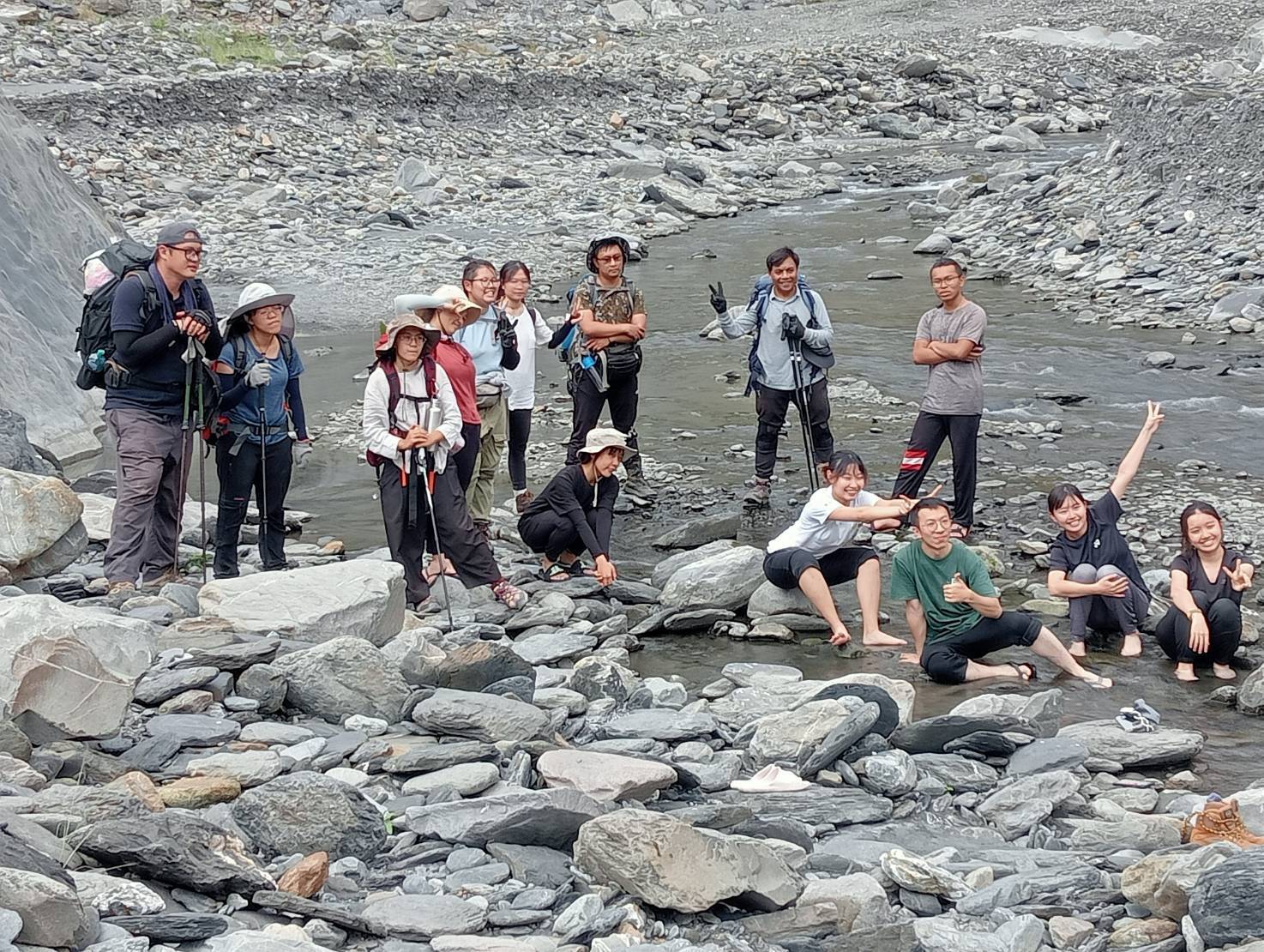
SDG11NCKU Archaeology Institute faculty and students participate in the reconstruction of traditional Rukai indigenous slate houses.
View more



















